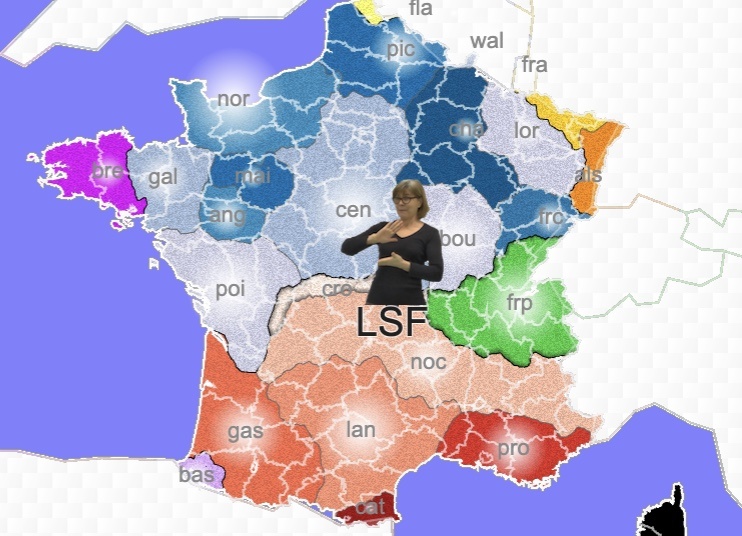French Dialects
 What is the difference between a language and a dialect? Faced with the question, linguists like to repeat the grand old observation of the linguist and Yiddishist Max Weinreich, that “a language is a dialect with an army and a navy.”
What is the difference between a language and a dialect? Faced with the question, linguists like to repeat the grand old observation of the linguist and Yiddishist Max Weinreich, that “a language is a dialect with an army and a navy.”
French dialects refer to the regional variations and linguistic diversity within the French language. While Standard French, known as “le Français standard,” is the official language of France, there are numerous dialects and regional languages spoken in different parts of the country. These dialects reflect the rich cultural and historical heritage of various regions in France. It is important to note that while French dialects exist, Standard French remains the dominant language in official settings, education, and media. However, efforts are being made to preserve and promote regional dialects through cultural organizations, language revitalization projects, and increased recognition of linguistic diversity in France.
The existence of French dialects adds to the linguistic and cultural richness of the country, showcasing the diversity and uniqueness of different regions within France.
French being a romance language, it belongs to the Indo-European family. Most French dialect variants belong to the same family except the Basque dialect spoken in the Basque region.
French dialects reflect the linguistic diversity within France.
One prominent French dialect is Occitan, also known as Langue d’Oc, which is spoken in the southern part of France. Occitan has its roots in the language spoken in medieval times and has several sub-dialects such as Provençal, Gascon, and Languedocien. Occitan has its own literature, poetry, and cultural traditions.
Another French dialect is Alsatian, spoken in the region of Alsace in northeastern France. Alsatian is influenced by both German and French, reflecting the historical ties between the two countries. It has its unique vocabulary, pronunciation, and grammar.
In addition to Occitan and Alsatian, other regional dialects include Breton in Brittany, Corsican in Corsica. Derived from Italian, Corsican is spoken on the island of Corsica in the Mediterranean Sea. Corsican has been recognized as one of the regional languages of France and is actively promoted and preserved on the island.
Basque is spoken in the Basque Country, which spans across parts of southwestern France and northern Spain. The Basque Country spans across parts of northeastern Spain, including the autonomous communities of Basque Country (Euskadi) and Navarre (Navarra), as well as southwestern France, including the departments of Pyrénées-Atlantiques (Labourd, Basse-Navarre, and Soule) and some parts of the department of Landes.
Basque is geographically surrounded by Romance languages but is a language isolate unrelated to them, and to any other language in the world. It is the last remaining descendant of one of the pre-Indo-European languages of Prehistoric Europe.
In Spain, Basque is one of the co-official languages in the Basque Country, along with Spanish. It is also recognized as a regional language in the autonomous community of Navarre, where it is spoken in the northern part of the region.
It has a rich cultural heritage and plays a significant role in the cultural identity of the Basque people in both Spain and France.
Linguists have extensively studied Basque, and despite efforts to find linguistic connections, no conclusive evidence has been found to link Basque to any other language. This makes Basque an exceptional and fascinating language in the field of linguistics.
The isolation of Basque has contributed to its distinctiveness and uniqueness. It has its own grammar, vocabulary, and phonetics that are unlike those of any other language. This makes learning Basque a challenge for speakers of other languages, as there are no familiar linguistic features to rely on.
Basque has survived for centuries in the Basque Country, standing as a testament to the resilience and cultural identity of the Basque people. Its status as a language isolate adds to its significance and intrigue, making it a subject of great interest for linguists and language enthusiasts alike.
Basque has survived for centuries in the Basque Country, standing as a testament to the resilience and cultural identity of the Basque people. Its status as a language isolate adds to its significance and intrigue, making it a subject of great interest for linguists and language enthusiasts alike.
These dialects often have strong cultural and regional identities and are sometimes used alongside or in place of Standard French in local communities. Some of them are taught in schools and universities. Each dialect has its own unique characteristics, vocabulary, and cultural significance, adding to the linguistic diversity and heritage of France.
It is important to note that while French dialects exist, Standard French remains the dominant language in official settings, education, and media. However, efforts are being made to preserve and promote regional dialects through cultural organizations, language revitalization projects, and increased recognition of linguistic diversity in France.
Category: Foreign Language








